In the heart of Iraq’s culinary tradition lies a dish that has captivated palates for centuries: Masgouf. This iconic grilled fish dish not only embodies the rich flavours of Iraqi cuisine but also holds cultural significance, representing a cherished culinary heritage passed down through generations. Join me as we delve into the tantalizing world of Masgouf, uncovering its origins, preparation, and enduring popularity.
Iraqi cuisine has a long history going back some 10,000 years – to the Sumerians, Akkadians, Babylonians, Assyrians and ancient Persians. When transportation reached a point where people from as far as the Mediterranean and India arrived, they brought new foods and spices with them. Iraqi kitchen reached its zenith during the Abbasid caliphate.
Origins and Historical Significance
Masgouf traces its roots back to ancient Mesopotamia, where the Tigris and Euphrates rivers teemed with freshwater fish, particularly carp and catfish. Historically, fish was a staple food for the people of Mesopotamia, revered for its abundance and nutritional value. Over time, Masgouf emerged as a beloved culinary tradition, celebrated during festive occasions, family gatherings, and special events.
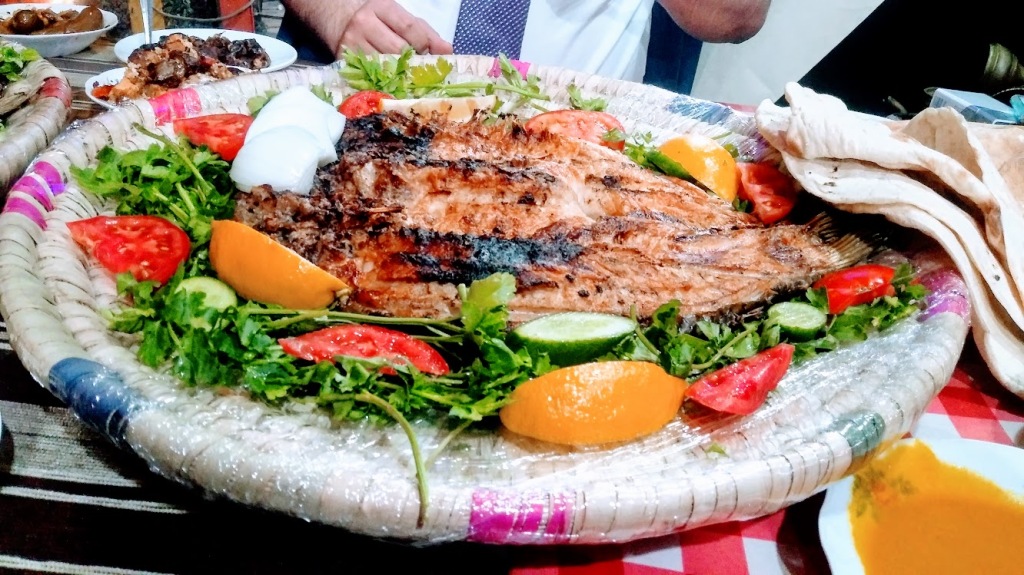
There is universal acceptance of masgouf as a delicacy, a Baghdad and Tigris delicacy, for it is rarely eaten elsewhere.
Mora Dickson (1961), Baghdad and Beyond
Preparation and Ingredients
Because of its popularity throughout the country, masgouf is, de facto, considered the national dish of Iraq and Baghdad prides itself on making the best of the Masgouf.
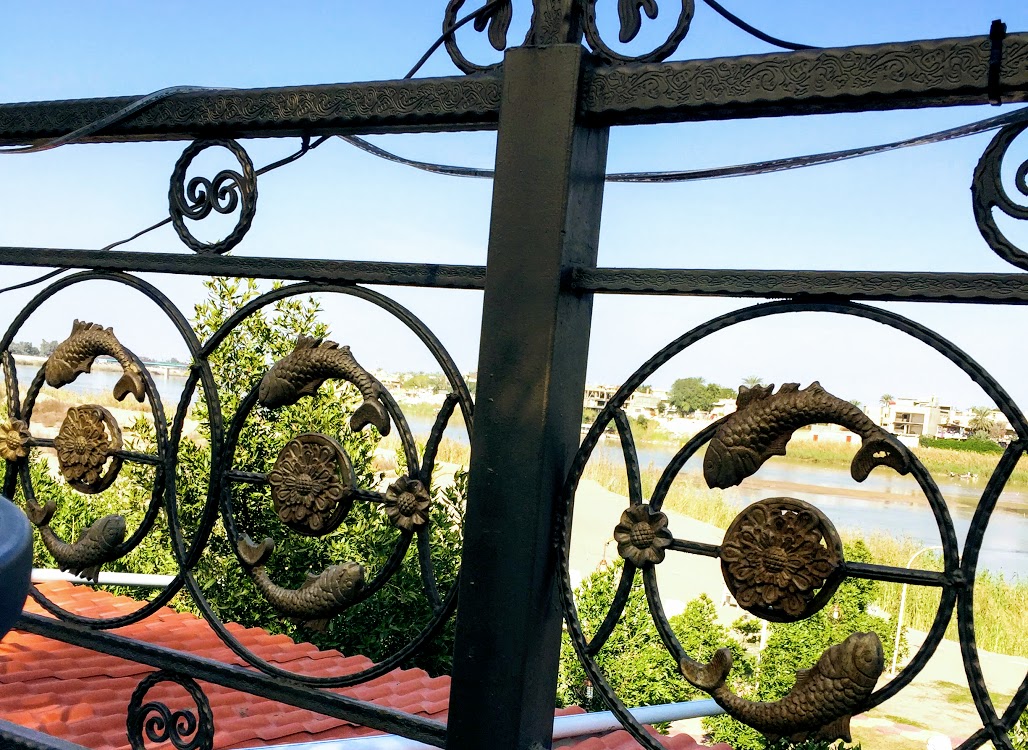
The preparation of Masgouf is a testament to simplicity and flavour, highlighting the natural essence of fresh fish. Traditionally, carp or catfish is used, chosen for its firm texture and mild taste. The fish is carefully cleaned, scaled, and split open, creating a distinctive butterfly shape.
Next, the fish is marinated with a blend of traditional Iraqi spices, including turmeric, coriander, cumin, and dried lime. These aromatic seasonings infuse the fish with layers of flavour, enhancing its natural taste. Once marinated, the fish is skewered on long wooden rods and grilled over an open flame, typically using wood from fruit trees such as date palms or apricots. This method imparts a smoky aroma and imparts a charred, crispy exterior to the fish while keeping the flesh tender and moist.
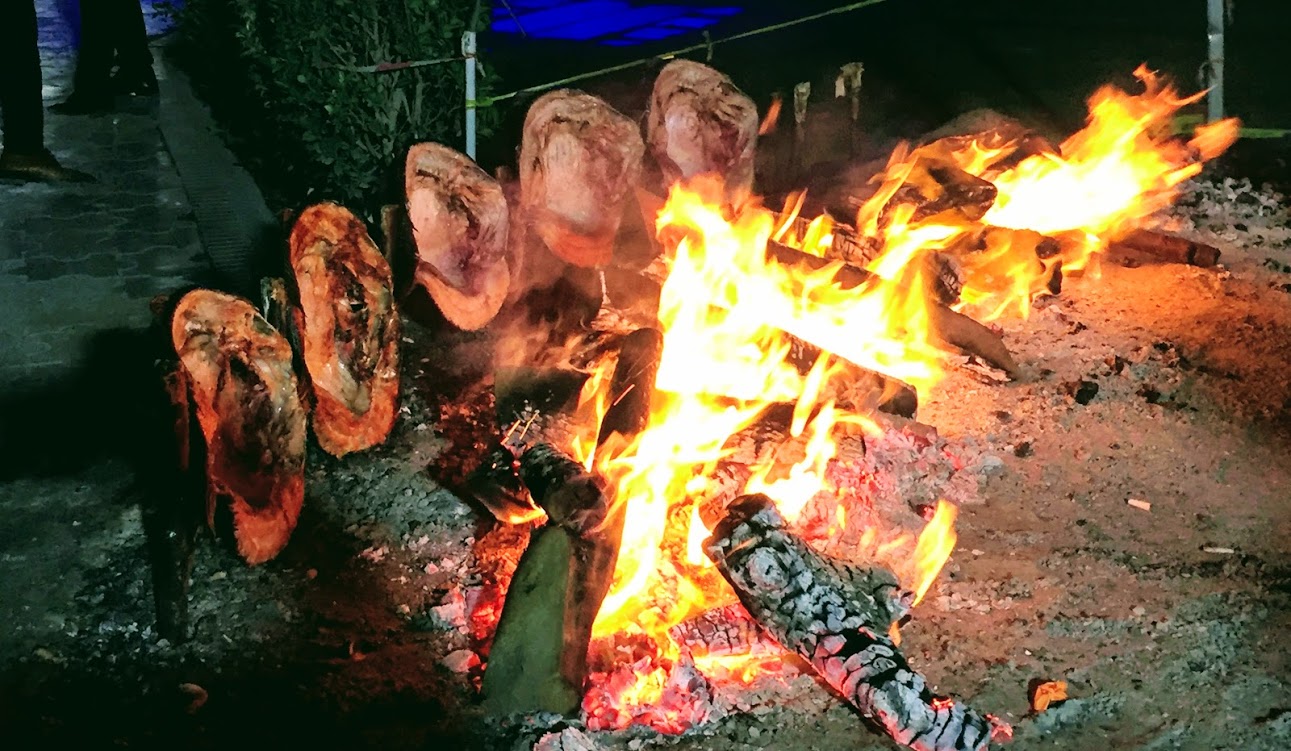
It is considered lucky to eat it on Wednesdays. It is said to have medicinal qualities, and even aphrodisiacal powers, especially the milt, which can be roasted in a cast-iron pan upon request.
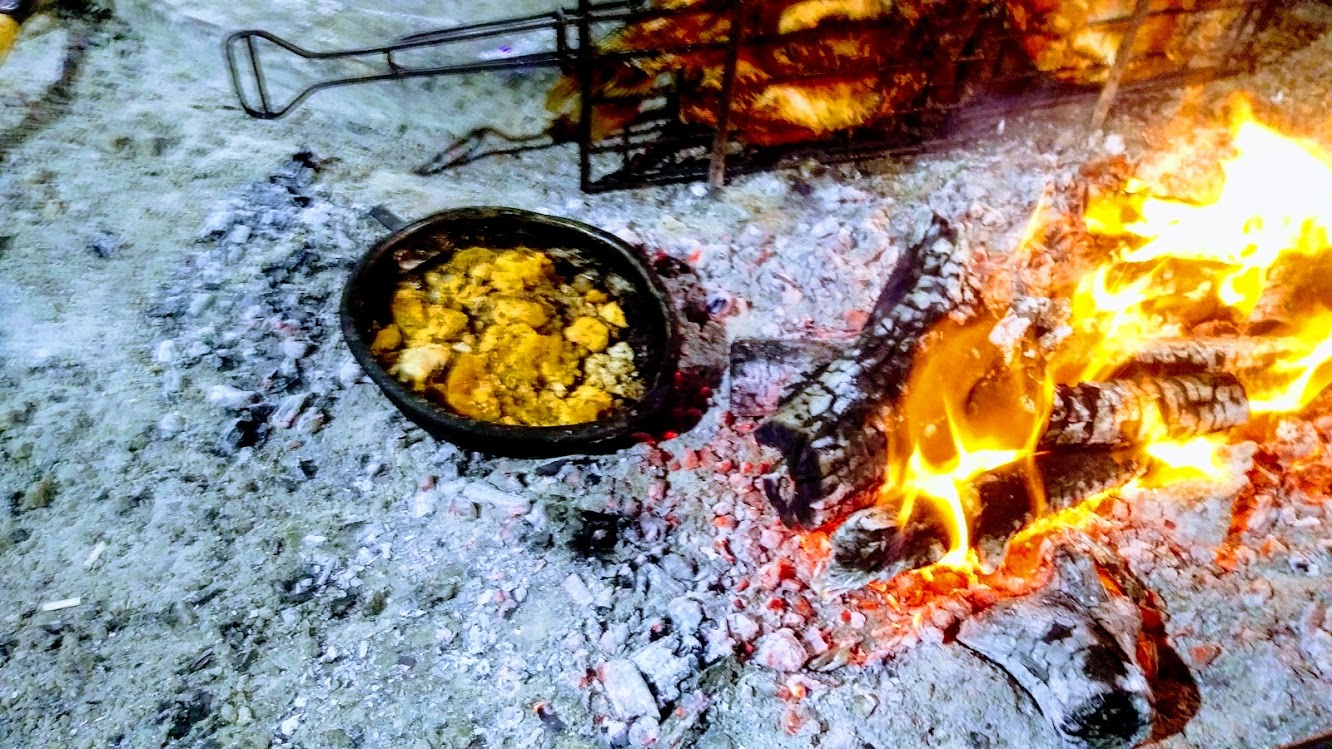
While we were waiting for the masgouf to be served, we had a wonderful surprise from the chef, he served us a plate of fried fish roe and milt. I love fish roe.
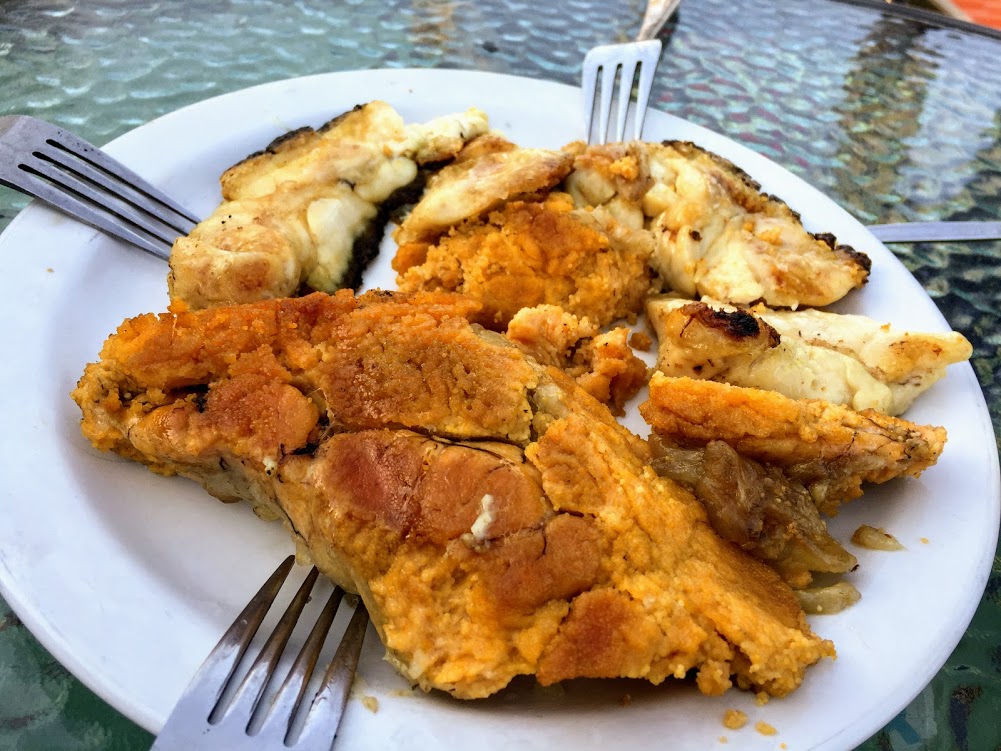
By roasting the fish vertically with the open side facing the fire, the oil seeps into the ashes, leaving salted, seasoned fish meat. The fish is cooked until most of the fish’s fat is burnt out, as the carps are typically fatty.
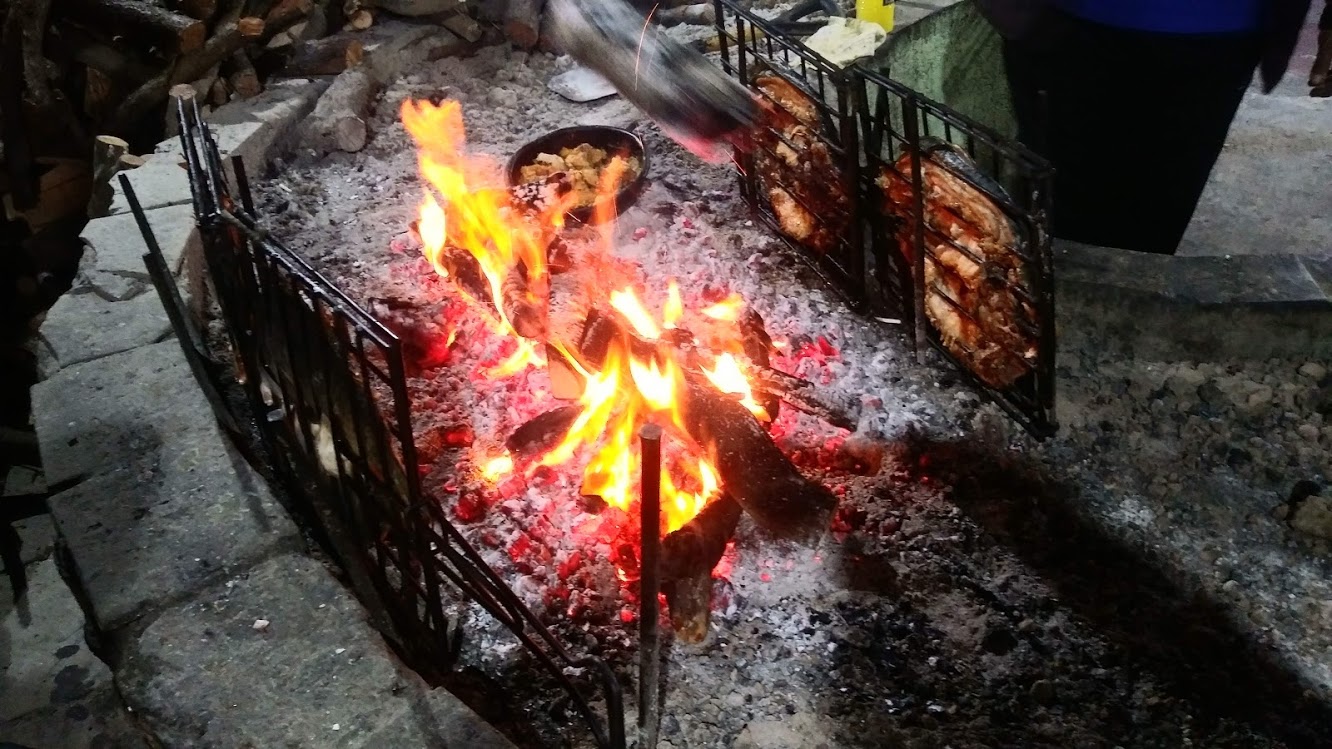
Serving and Accompaniments
Masgouf is traditionally served fresh off the grill, piping hot and imbued with the tantalizing aroma of spices and smoke. The fish is often presented whole, allowing diners to savour its succulent flesh and crispy skin. Accompaniments vary but may include Iraqi flatbread (khubz), pickled vegetables, fresh herbs, and tangy sauces such as tamarind or pomegranate molasses. It is never served with spoons, knives, and forks. You do your best with the bread and your fingers. It’s really very tasty… Yummy!
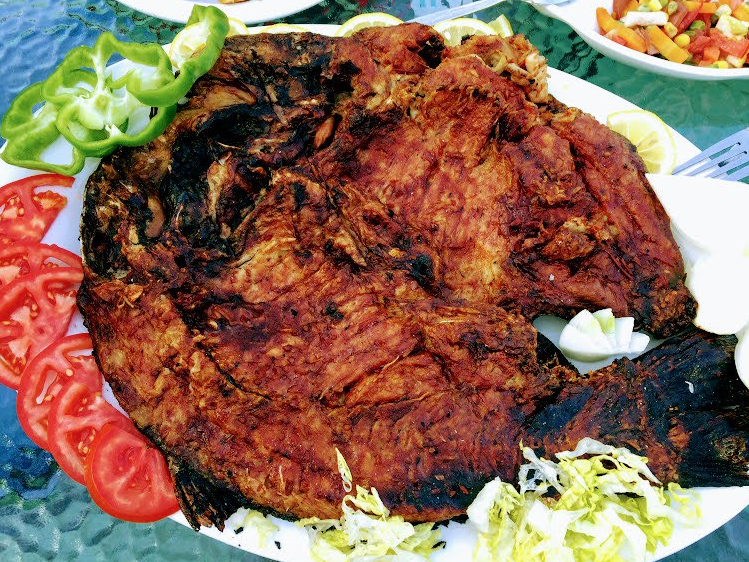
Masgouf is mentioned in a tenth-century cookbook, Kitab Al-Tabih (The Book of Dishes) compiled by Ibn Sayyar al-Warraq. This is the earliest known Arabic cookbook. It contains over 600 recipes.
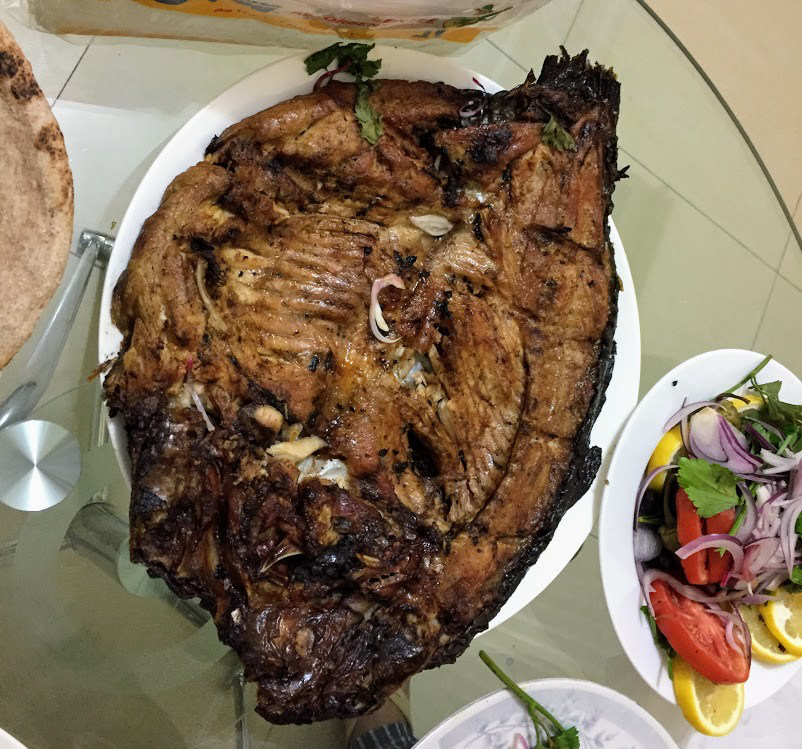

On a hot summer day, the cook brought us a dish of shabbut (carp). He brought it in looking like the sun, a radiant delight, redolent with aloe wood, musk, and amber.
Ibrahim ibn al-Mahdi (lived 779–839), half-brother of the Abbasid Caliph Harun al-Rashid
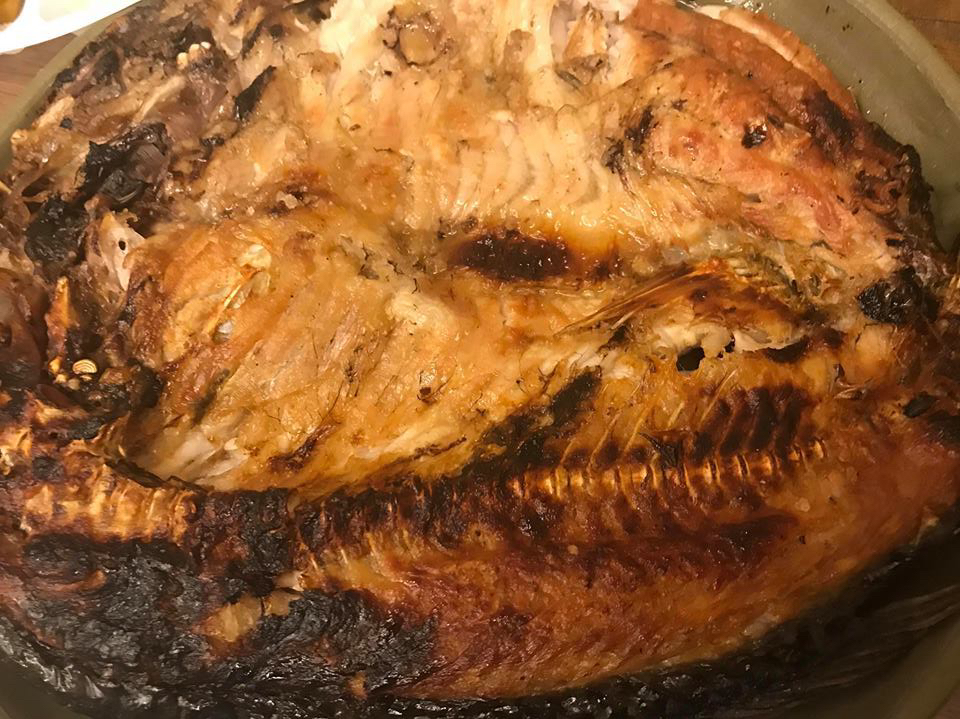
Nostalgia is almost certainly a factor in its appeal since Masgouf evokes a simpler era in Baghdad that exists only in memory. In the fall of 2003, Annia Ciezadlo spent her honeymoon in Baghdad. In her famous book, Day of Honey: A Memoir of Food, Love, and War, she penned:
There was a phrase Iraqis were always using: the flavour of freedom. For a lot of Baghdadis, that flavour was masgouf. It was more than just a fish, or a way of preparing it; the ritual of masgouf embodied a vanished place and time and way of life.
Annia Ciezadlo
Beyond its culinary appeal, Masgouf holds deep cultural significance in Iraqi society, symbolizing hospitality, generosity, and communal unity. Sharing a meal of Masgouf with family and friends is not merely a culinary experience but a cherished tradition that fosters bonds and strengthens social ties. Whether enjoyed at home, in traditional restaurants, or by the banks of the Tigris River, Masgouf embodies the spirit of Iraqi hospitality and cultural heritage.
Masgouf stands as a testament to the enduring legacy of Iraqi cuisine, blending centuries-old traditions with a deep reverence for the natural bounty of the land. From its humble origins along the banks of the Tigris and Euphrates rivers to its status as a beloved national dish, Masgouf continues to captivate food enthusiasts around the world with its exquisite flavours and rich cultural heritage. It may not be the most spectacular fish I have eaten over the decades, but it is definitely an experience that I would recommend to anyone visiting Iraq. I love it. 🙂

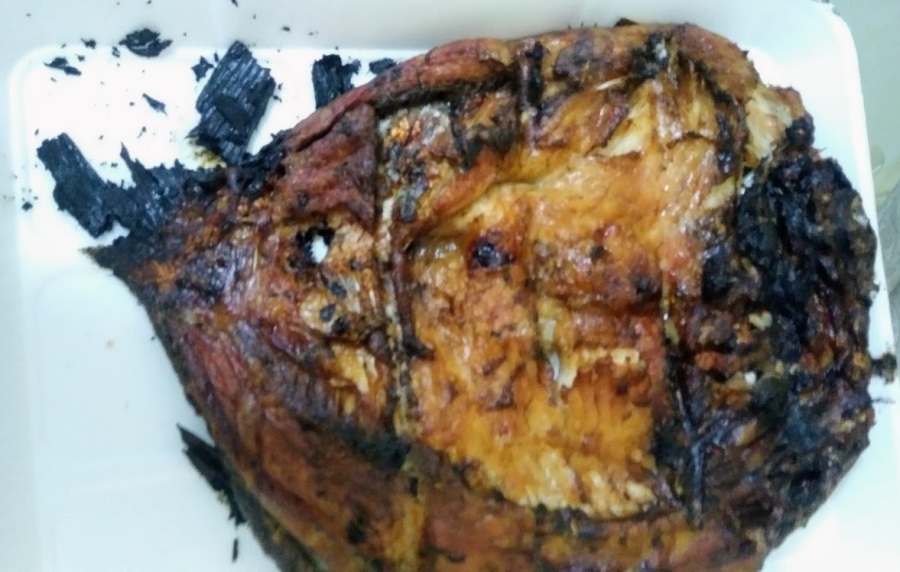
The process of cooking makes it a delicacy. The masgouf looks truly delicious, more so to the Bengalis, I guess…. 😀
LikeLiked by 1 person
মাছ বাঙ্গালীর কাছে সব সময় প্রিয়। একটা অন্তরিক আকর্ষন আছে। 😀
LikeLiked by 1 person
Hello, the quote by al-Mahdi is quite fascinating. Could you point me to the source? I would like to read more. Many thanks,
C. Newton
LikeLike
Almost the exact recipe is made in Serbia, Croatia, Hungary, areas along the Danube river. Most prized delicacy over here.
LikeLiked by 1 person
Wow, would love to have it by Danube one day. But when? 🤔😉
LikeLike